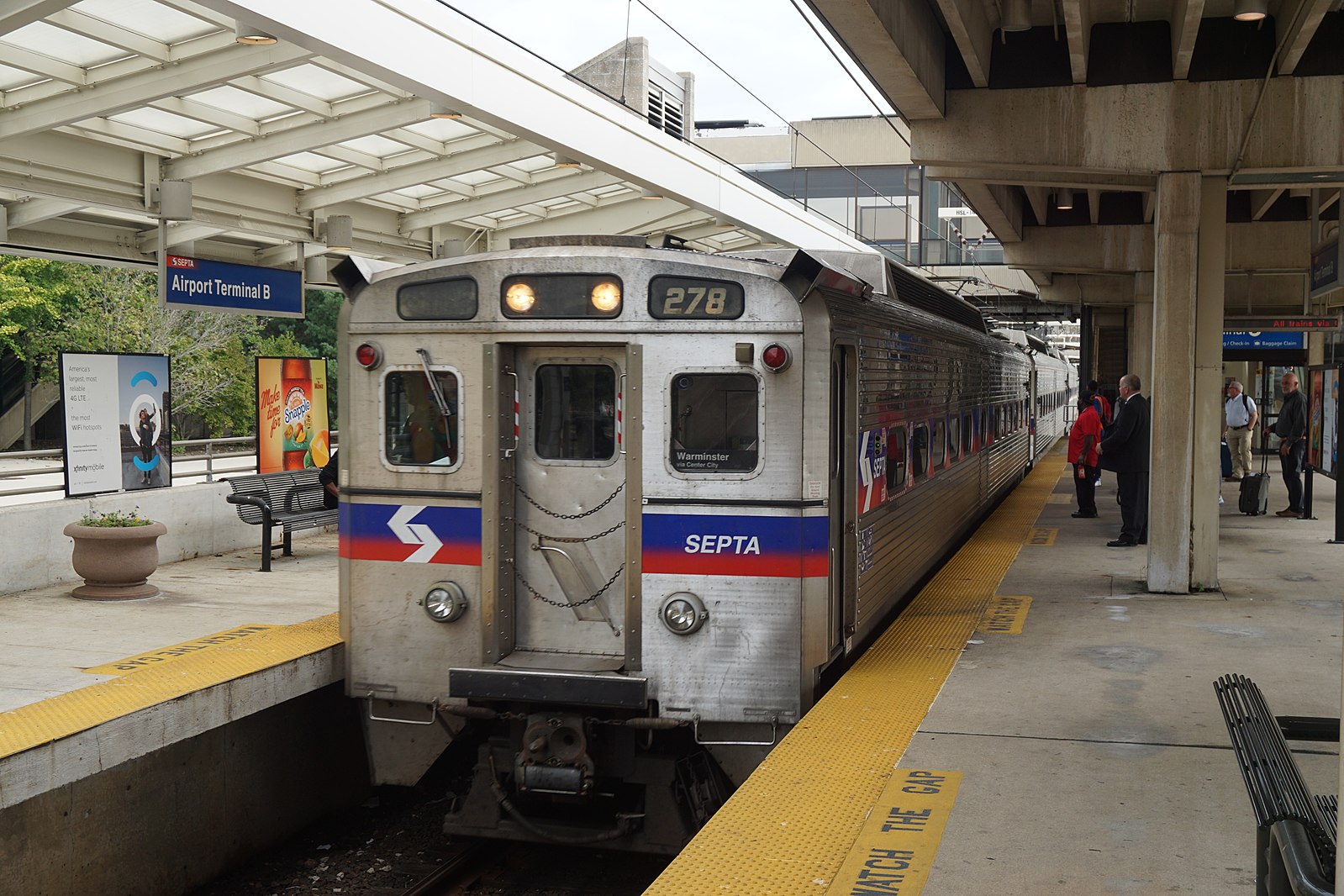Warning that a fiscal cliff is on the horizon, a group of Democratic Pennsylvania lawmakers sent a letter to Transportation Secretary Pete Buttigieg asking for a federal taxpayer bailout of the Southeastern Pennsylvania Transportation Authority (SEPTA).
“We are at a critical juncture for transit in the Philadelphia region,” wrote U.S. Reps. Madelaine Dean, Chrissy Houlahan, and Mary Gay Scanlon. Sens. John Fetterman and Bob Casey Jr. signed the letter as well, as did Rep. Dwight Evans of Philadelphia. “Without strong, sustained federal support, Pennsylvanians risk losing transit access entirely…As the Department of Transportation continues its critical work, we urge you to prioritize SEPTA and Pennsylvania’s transit systems.”
The plea for help comes despite data showing that SEPTA’s ridership remains far below pre-pandemic levels while expenses and taxpayer funding have skyrocketed. And, critics say, taxpayers are already paying more than their fair share to subsidize a system few of them use.
SEPTA received more than $1.8 billion in federal COVID money between Fiscal Years 2020 and 2023, according to agency documents. Some of the money handled “operating and capital expenses” through Fiscal Year 2024. Independent auditors wrote the Pennsylvania taxpayers’ $2 billion in annual funding accounts for “the largest single source of subsidy revenue.”
By comparison, SEPTA generated $1.18 billion in revenue between Fiscal Years 2020 and 2023. The nation’s fifth-largest mass transit system, its ridership on buses, metro rail, and regional rail averages about 61 percent of pre-COVID levels. In 2012, SEPTA averaged 339.3 million paid passengers. It was 146.9 million paid passengers in 2022, up from 105.8 million in 2021.
Federal Department of Transportation (DOT) statistics show SEPTA spent $1.44 per passenger miles traveled on commuter rail in 2022 compared to 49 cents per passenger mile in 2013. For bus passengers, it was $2.66 in 2022 versus $1.09 in 2013. Streetcar rail was $2.87 in 2022 and only .94 cents in 2013.
Commonwealth Foundation Senior Vice President Nathan Benefield told DVJournal SEPTA squandered a chance to enact meaningful reforms.
“Instead of cutting costs or focusing on more efficient routes, SEPTA has increased its operating budget by nearly 10 percent,” said Benefield. “SEPTA has notoriously been among the least efficient transit systems (even of generally inefficient mass transit agencies) and more reliant on state aid than the average. SEPTA’s funding includes revenue from the state sales tax, driver fines and fees, and turnpike tolls—forcing drivers to pay for the transit system they choose to avoid.”
SEPTA insists it would enter a “death spiral” if it didn’t receive more taxpayer dollars. Authority officials told the state House Transportation Committee last year that it would start running a $240 million annual deficit in Fiscal Year 2025. That’s due to rising expenses from inflation and higher fuel and electricity prices. Labor and fringe benefits cost SEPTA over a billion dollars.
“The cost of inaction to address the fiscal cliff will render SEPTA unable to effectively meet the region’s basic transportation needs…impacting low-income individuals and families and communities of color,” SEPTA CEO Leslie Richards told the state House Transportation Committee last fall. “Untold thousands of hardworking Pennsylvanians will lose the ability to easily and affordably get to their jobs and patronize businesses.”
The agency warned that it would raise fares and cut routes if it didn’t receive more federal money. That included claims of $3 base fares and a $120 monthly pass. If riders have to cover more of the costs, Democrats argued, there would be fewer riders. And that would undermine another goal: getting more people to use transit to fight climate change.
“We cannot ease congestion or reduce emissions without transit,” the federal lawmakers wrote to Buttigieg.
But SEPTA’s record with green technology and climate initiatives is spotty at best.
Its attempt to use zero-emission buses fell apart, literally, in 2019 when cracks were discovered on the buses. The bus maker filed for Chapter 11 bankruptcy protection last year, and SEPTA could be out millions. Plans for a zero-emissions fleet are stalled out.
Rather than reforms, however, Dean, Houlahan, and Scanlon want more tax money invested in the current system. They warn that as inefficient as it is, the transportation grid might be overwhelmed when tourists and sports fans flock to the region without SEPTA spending.
“How will we host major events in Pennsylvania, including the 250th anniversary of the Declaration of Independence in two years, without a viable transit system?” they wrote. Philadelphia will be one of the host cities for the 2026 World Cup. “As federal funding for capital expenditures continues to move, SEPTA should remain a priority.”
But Benefield believes enough is enough. “SEPTA lobbyists are out begging for yet another taxpayer bailout,” he said. “They shouldn’t get it.”

